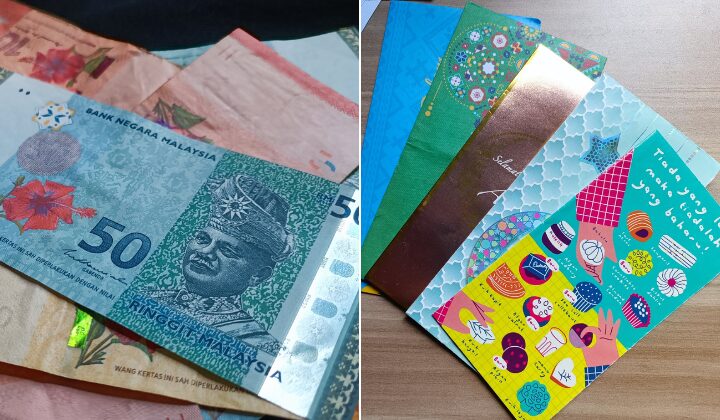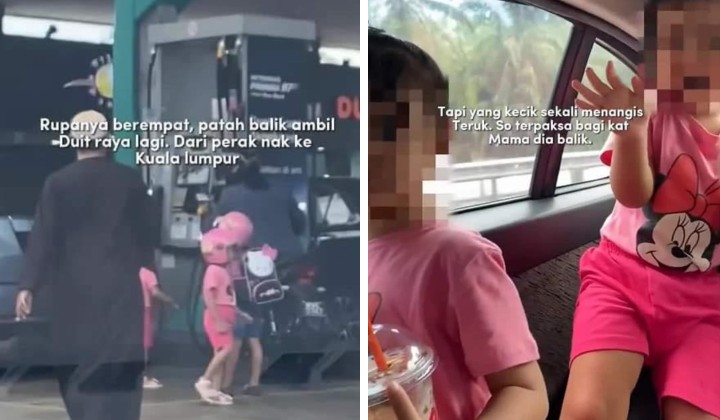The MC Epidemic: The Sick Leave Saga Stirring The Workplace
While there is no official data on the prevalence of MCs after the Raya holidays, anecdotal evidence and online discussions suggest that it is a somewhat common practice.

Subscribe to our FREE Newsletter, or Telegram and WhatsApp channels for the latest stories and updates.
In the aftermath of festive congestion, if social media sharings are to be believed, there appears to be a surge in sick leave (MC) or emergency leave (EL) as workers seek respite.
Some embark on unintended journeys through remote landscapes, and others openly share their downtime in digital camaraderie.
While there is no data on MC usage or EL applications, specifically after the Raya holidays, social media suggests that many have opted for extended days off.
One remark hints at a broader trend towards prioritizing mental health: “Everyone’s taking leave, whether EL or MC, for their mental well-being.”
Compellingly, some workers took shared screenshots of conversations on WhatsApp groups, where numerous colleagues declared they were taking MCs.
Masalahnya mmg balik cuti raya ramai yg betul-betul x sihat. Masa raya satu family aku kecuali ibu je x kena batuk selsema. Aku nasib baik smlm dah sembuh batuk selsema sakit kepala so boleh masuk kerja mcm biasa. Wife still batuk selsema, harini kerja jgk sbb mc sampai smlm je. https://t.co/SvQiSjdpSr
— hafizin 🇲🇾🇵🇸 (@hfznisml) April 16, 2024
Holiday Blues or Excuse? The Post-Fest MC Dilemma Hits Workplaces Hard
In the aftermath of festive celebrations, the workplace is witnessing a divide over taking additional time off.
While some employees argue for the necessity of rest, particularly after demanding on-call duties, others pride themselves on their swift return to work, highlighting a split attitude towards post-holiday recuperation.
The dilemma is compounded by guilt among those who choose to take MC, cognizant of the extra burden their absence places on colleagues.
This sense of duty towards team dynamics and workflow adds complexity to the decision-making process, reflecting wider discussions about workplace culture, empathy, and the balance between personal health and professional responsibilities.
Moreover, the timing of these MCs—often immediately following a holiday and just before the weekend—invites scrutiny and suspicion from employers and peers.
This scepticism can make the already difficult decision to take leave even more challenging, as individuals worry about being perceived as less committed or seeking an unjustified extension of their break.
Some companies offer additional leave days or flexible working arrangements during the Raya period to reduce the need for employees to take emergency leaves, whether in the form of AL or MC.
Ambil la cuti sehari lepas balik dari kg tu rest ka apa. Tapi baca comment bos tak approve. Tak approve then balik lee awal sehari. Responsible la sikit. Raya rabu bukan jumaat. Sebab cam ini la bila yg betul2 sakit mc, orang fikir lain 😢 https://t.co/hc1tqDbRjR
— tapawhere (@frdjlythr) April 15, 2024
Detour Dilemma: The Unintended Adventure
Meanwhile, some travellers seeking to return to the Klang Valley were embroiled in an unexpected adventure.
Attempting to outsmart the notorious holiday traffic jams reported by highway authorities and driving apps, they turned to trunk roads as a seemingly wise alternative.
However, these routes, meandering through remote areas and paddy fields, proved to be anything but reliable.
This adventurous yet fraught attempt to circumvent congestion inadvertently led to increased MCs, as exhausted travellers needed an additional day off to recuperate from their unintended detours.
The decision to navigate these less-travelled paths, while initially perceived as a clever shortcut, often resulted in prolonged journeys fraught with challenges.
Travellers encountered roads lacking clear signage and not designed to handle the holiday traffic surge.
The journey became even more daunting with poor road conditions, a scarcity of nearby facilities, and the psychological toll of being lost in unfamiliar territories, including vast plantations.
This series of unexpected challenges extended their travel time and compounded their fatigue and stress, contributing significantly to the post-holiday ‘MC epidemic’.
Share your thoughts with us via TRP’s Facebook, Twitter, Instagram, or Threads.





